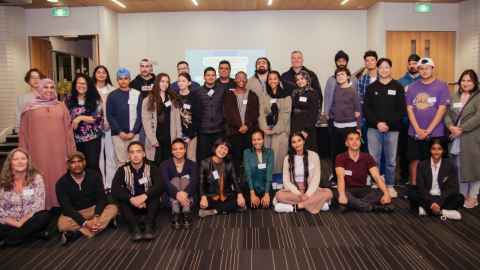
Find out about the Centre for Asia Pacific Refugee Studies' vision and mission.
Find out more
The Refugee Advisory Panel, supported by CAPRS, works in partnership with Immigration New Zealand.
Learn more
Further scholarly research related to forced displacement in Asia Pacific by converting your work into action-oriented policy papers through this fellowship.
Learn more


